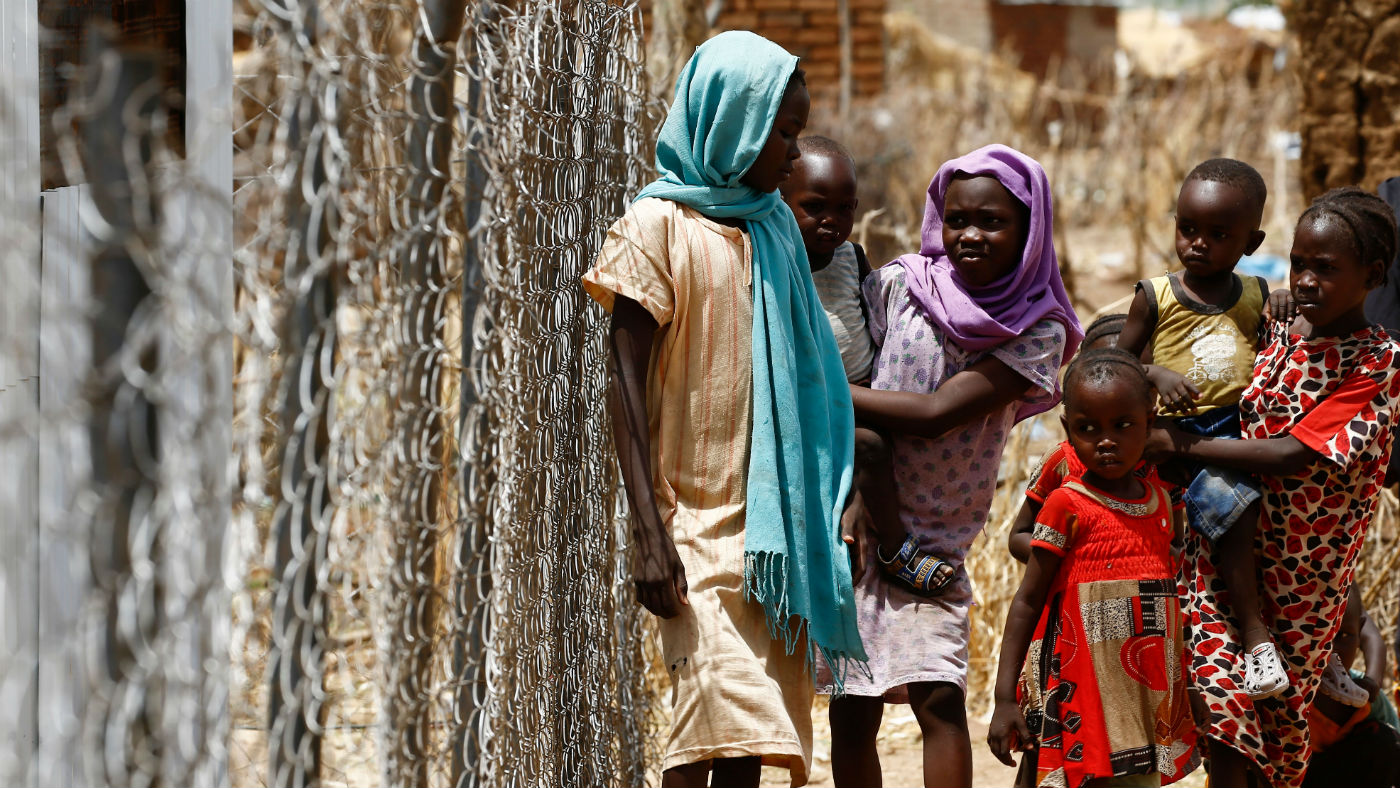Almost 71 million people fleeing conflict and oppression: the worst-affected countries
UN refugee agency says one person is forcibly displaced every two seconds as worldwide total hits record high

A free daily email with the biggest news stories of the day – and the best features from TheWeek.com
You are now subscribed
Your newsletter sign-up was successful
A total of 70.8 million people worldwide were forced to flee their homes due to violence or persecution last year – the greatest number since records began almost seven decades ago, according to the United Nations.
The latest annual Global Trends report from the UN High Commissioner for Refugees (UNHCR) says that an average of 37,000 people were newly displaced every day in 2018 - equivalent to one person almost every two seconds.
The yearly total is up by 2.3 million on the number of people forcibly displaced at the end of 2017 – and around double the figure from ten years ago, CNN notes.
The Week
Escape your echo chamber. Get the facts behind the news, plus analysis from multiple perspectives.

Sign up for The Week's Free Newsletters
From our morning news briefing to a weekly Good News Newsletter, get the best of The Week delivered directly to your inbox.
From our morning news briefing to a weekly Good News Newsletter, get the best of The Week delivered directly to your inbox.
UNHCR chief Filippo Grandi said: “What we are seeing in these figures is further confirmation of a longer-term rising trend in the number of people needing safety from war, conflict and persecution.
“While language around refugees and migrants is often divisive, we are also witnessing an outpouring of generosity and solidarity, especially by communities who are themselves hosting large numbers of refugees.”
The 2018 total included 25.9 million refugees, 41.3 million internally displaced people and 3.5 million people recorded as asylum seekers.
Syria: 13 million displaced
A free daily email with the biggest news stories of the day – and the best features from TheWeek.com
Of the refugees recorded by the UN, more than two-thirds came from just five nations: Syria, Afghanistan, South Sudan, Myanmar and Somalia. Syria produced a considerably higher number than any of the other countries, with 6.7 million fleeing conflict there. Another 6.2 million Syrians are living in internal displacement and 140,000 are seeking asylum.
The Western Asian nation has now been riven by civil war for more than eight years. The ongoing battle between Bashar al-Assad’s repressive regime and internal opposition groups has been complicated further by other belligerents including Islamic State and Kurdish groups.
Afghanistan: 5.1 million displaced
Some 2.7 million people are currently classed as refugees from Afghanistan, with the rest of the 5.1 million figure made up by the internally displaced and asylum seekers. As the government continues to battle the Taliban and other armed groups, Pakistan now hosts around 1.4 million Afghan refugees, with a further 950,000 in Iran.
According to The Strategist, the Afghan National Army is “barely holding out” against the Taliban – but US-based news magazine says the problem is “not primarily a military one” but rather reflects “ethnic, tribal, linguistic and cultural” divisions within the nation.
Venezuela: four million displaced
The increase in Venezuelans fleeing the country’s humanitarian and economic crisis was of “particular note” in 2018, says the UN report, which warns that figures for refugees from the South American nation may rise further as more data is gathered. Around three million Venezuelans were known to have left by the end of 2018, with another 900,000 seeking asylum overseas.
The UN believes that about a quarter of the population of Venezuela is in need of aid, amid widespread shortages of food and medicine, according to the Daily Express.
-
 The environmental cost of GLP-1s
The environmental cost of GLP-1sThe explainer Producing the drugs is a dirty process
-
 Greenland’s capital becomes ground zero for the country’s diplomatic straits
Greenland’s capital becomes ground zero for the country’s diplomatic straitsIN THE SPOTLIGHT A flurry of new consular activity in Nuuk shows how important Greenland has become to Europeans’ anxiety about American imperialism
-
 ‘This is something that happens all too often’
‘This is something that happens all too often’Instant Opinion Opinion, comment and editorials of the day
-
 Epstein files topple law CEO, roil UK government
Epstein files topple law CEO, roil UK governmentSpeed Read Peter Mandelson, Britain’s former ambassador to the US, is caught up in the scandal
-
 Iran and US prepare to meet after skirmishes
Iran and US prepare to meet after skirmishesSpeed Read The incident comes amid heightened tensions in the Middle East
-
 Israel retrieves final hostage’s body from Gaza
Israel retrieves final hostage’s body from GazaSpeed Read The 24-year-old police officer was killed during the initial Hamas attack
-
 China’s Xi targets top general in growing purge
China’s Xi targets top general in growing purgeSpeed Read Zhang Youxia is being investigated over ‘grave violations’ of the law
-
 Panama and Canada are negotiating over a crucial copper mine
Panama and Canada are negotiating over a crucial copper mineIn the Spotlight Panama is set to make a final decision on the mine this summer
-
 How oil tankers have been weaponised
How oil tankers have been weaponisedThe Explainer The seizure of a Russian tanker in the Atlantic last week has drawn attention to the country’s clandestine shipping network
-
 Why Greenland’s natural resources are nearly impossible to mine
Why Greenland’s natural resources are nearly impossible to mineThe Explainer The country’s natural landscape makes the task extremely difficult
-
 Iran cuts internet as protests escalate
Iran cuts internet as protests escalateSpeed Reada Government buildings across the country have been set on fire